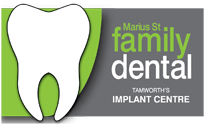When do you need antibiotics?
Why do I need an x-ray?
As x-ray is important for many reasons: it shows the condition of the tooth, signs of abscess underneath the tooth, to check if there are important structures close to the roots like the sinus or jaw nerve, and, of course – it shows us what the roots look like so we can make a plan as to how to bets remove it!
What are the risks and what can I do to reduce them?
Risks depend on which tooth, the procedure and your medical history. We will let you know about risks specific to your tooth at the appointment.
Bleeding: keep your gums as healthy as possible before the extraction, let us know if you are on any medications, make sure you don’t take aspirin for the pain, don’t do any strenuous exercise afterwards, cold foods, ice packs and keeping the area completely undisturbed.
Infection: gum health and oral hygiene is really important. Salty mouthrinses after meals and before bed starting from 24 hours after the extraction. If antibiotics are given, make sure you follow the instructions and finish the course.
Pain and swelling: this is a normal part of the healing process. Follow the pain medication instructions given afterwards. Ice pack for the first 24 hours. Eat healthy, anti-inflammatory foods. Normally, the first three days are the worst, it gets better after this!
Dry socket: this is when there is inflammation of the bone around the extraction site. Risk increases if you lose your blood clot – so make sure you follow the instructions afterwards carefully. Avoiding smoking and alcohol for 7 days is also important to let the body heal as they kill the cells trying to repair the area.
Top teeth: oral-antral communication. This is when the roots of the top tooth are so close to the sinus floor, that when we take it out, there is a hole between the sinus and your mouth. This is uncommon. We take an x-ray to check how close your sinus is and will let you know if it’s a risk for you.
Lower teeth: jaw joint soreness. Let us know if you have any jaw joint pain or issues. As there is so much pressure, it can put strain on your joint. We will have the assistant support your jaw if you have any symptoms.
Bottom wisdom teeth: the main risk is that they can be close to a big nerve that runs through your lower jaw – read more about this on the wisdom extraction page.
What are surgical extractions?
Surgical extractions are where we have to remove some bone around the tooth, get some gum tissue away from the tooth or cut the tooth up into sections to get it out. We will run you through the process if this is required. It sounds awful, we know! But really, the best thing you can do is to trust you’re in good hands, and try and relax as much as possible!
